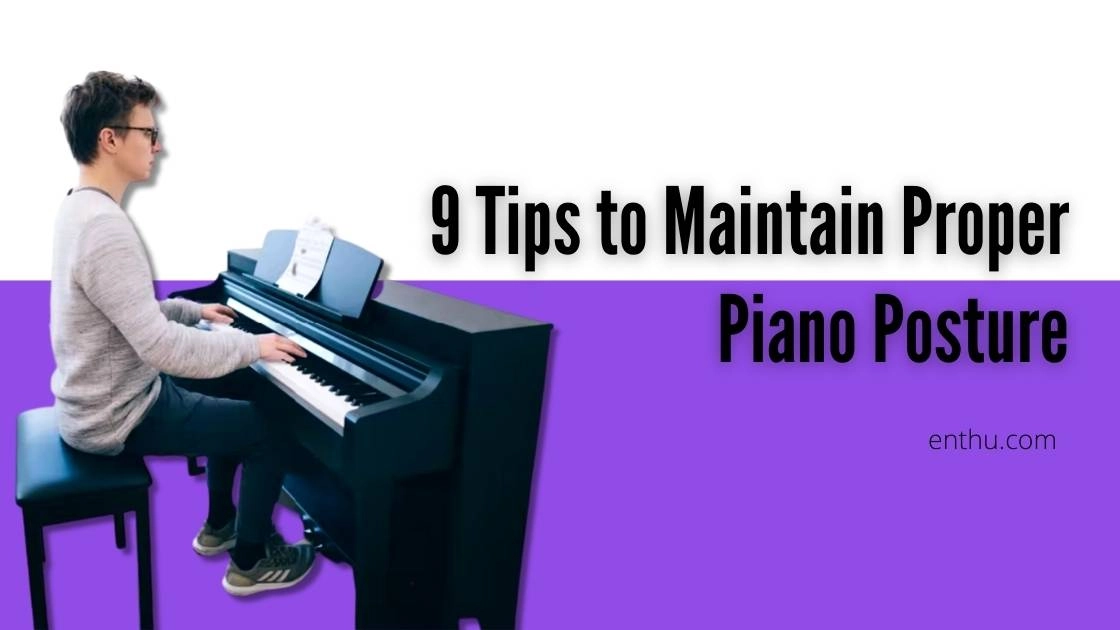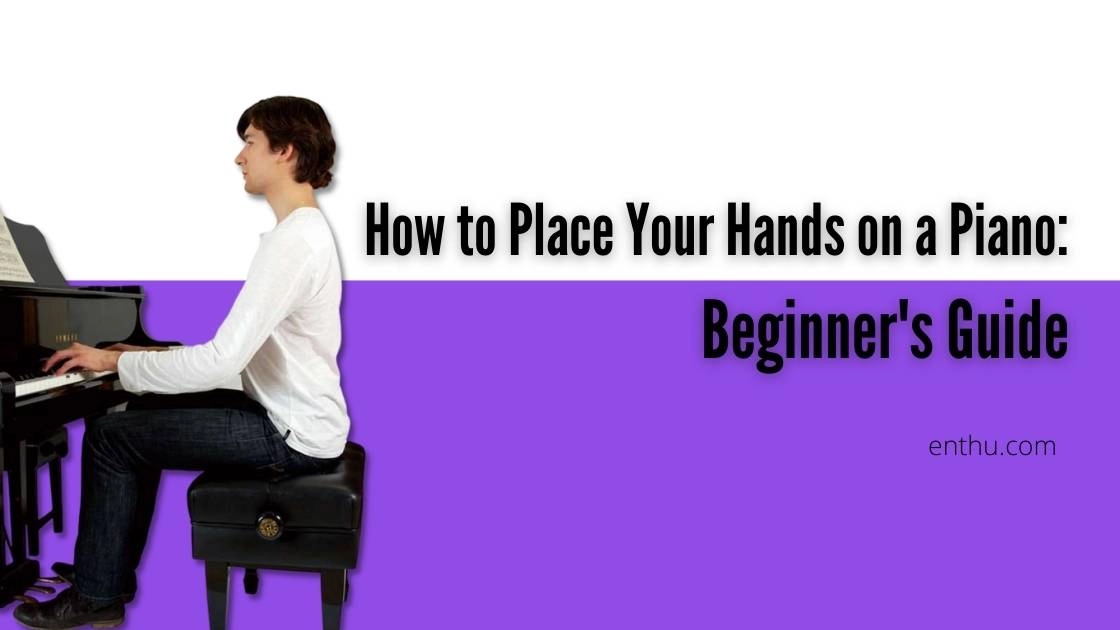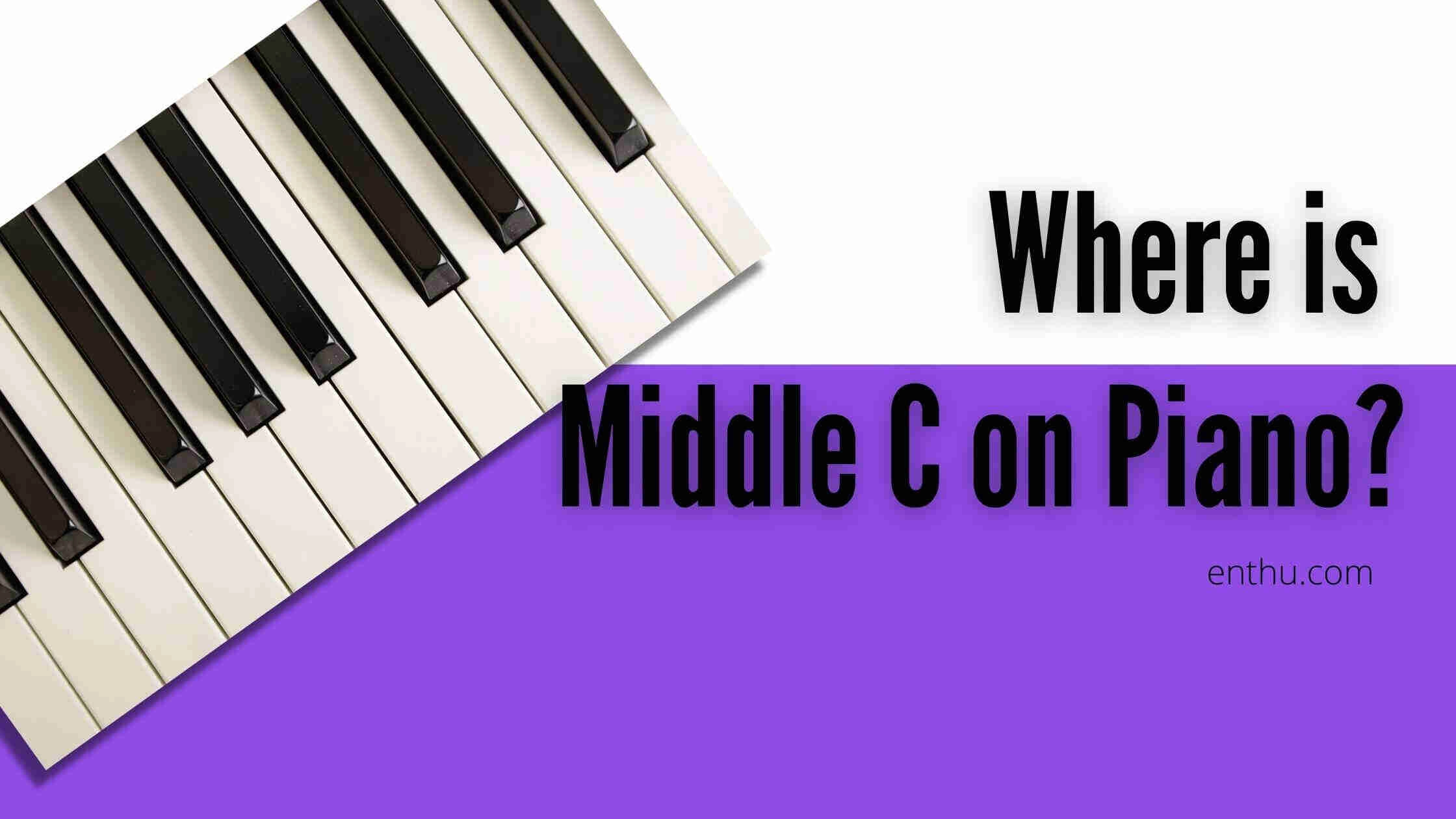Life is a piano. What you get out of it depends on how you play it. Many have heard the above lines by Tom Lehrer, but only a few understand how it’s as much about piano as it’s about life.
It’s evidently true that your music depends on how you play. Beginners and kids often ask me how to get better at the piano. All I want to say is that taking piano classes and clueless practice isn’t enough to be a good pianist.
One must know the proven tips to practice and get better at playing the piano. Keep reading this blog to find out the tips.
- 15 Tips to Get Better at Piano
- 1. Make a Practice Routine
- 2. Sit in Correct Posture during Practice Sessions
- 3. Correct Hand Posture
- 4. Practice with Both Hands
- 5. Learn the Basics of the Piano
- 6. Learn Notes, Chords & Chord Progression
- 7. Begin with Easy Piano Pieces
- 8. Play Piano by Ear while Practicing
- 9. Sing and Play at the Same
- 10. Practice Piano Scales to Become a Better
- 11. Learn to Read Sheet Music
- 12. Use a Metronome
- 13. Get Familiar with Piano Pedals
- 14. Be Patient with Yourself
- 15. Hire a Piano Instructor
- Conclusion
- FAQs
15 Tips to Get Better at Piano
1. Make a Practice Routine
My first suggestion is to take time out. If you’re struggling with time management, try to make a routine. Fix a time for your daily practice sessions.
Sometimes, we often feel bored or frustrated for not being able to play well, but I suggest practicing regularly. Time is on your side. You aren’t going for a stage performance today itself.
Even if it’s twenty to thirty minutes, do it. You must never miss your practice time.
Remember, professional pianists, take more than five years to play the piano professionally. Unless you’re a prodigy, you’ll need a similar time.

2. Sit in Correct Posture during Practice Sessions


Benefits pianists in different ways. It keeps the piano session pain-free and relaxed and enhances the quality of the music as well.
Try to keep your shoulders down, maintain a neutral spine, and keep your knees at a proper distance from the keyboard while practicing. Sit in the correct posture during your piano lessons. Try to make it a habit.
3. Correct Hand Posture

Piano tutors and instructors always stress correct hand placement. Learning proper hand placement on the piano is one of the primary things that you should know.

If you practice for a longer duration with the wrong hand posture, then you may end up with severe pain. In the long run, it will cause chronic pain in the wrist joints and elbow joints.
Therefore, for a piano playing experience, I suggest learning proper piano hand placements. In addition, correct hand postures enhance the tonal quality of the instrument and ensure a glitch-free performance.
4. Practice with Both Hands
Playing piano with one hand is as weird as eating with two spoons at the same time. In other words, playing piano with both hands is a part of the deal. One must learn and should do it perfectly.

However, before learning how to play with both hands, pianists must know about hand independence. It’s the ability to play piano with both hands independent of each other. Therefore, focus on your fingering.

If you’re also struggling to play with both hands, try playing with one hand at a time. For instance, when you’re playing with your left hand, don’t use the right hand, and vice versa. Try to play arpeggiated chords.
5. Learn the Basics of the Piano
Every beginner is more or less a piano-music fan. So, we feel we already know the basics of the piano. However, I suggest you go through the basics once again before sitting for practice.
Learn how to find the middle C. Get familiar with the keys. If you’re struggling to figure out the keys, try labeling the piano keys. You should also know which type of piano you’re playing and its various parts, if it’s acoustic or digital.

If it excites you, try to learn more about the history of the piano and how it evolved to become the modern piano we’re using today.

Learning the basics of the piano will make you feel less clueless about the instrument. At the same time, it will help you get better at the piano.
6. Learn Notes, Chords & Chord Progression
Before diving deep into piano playing, it’s important to build a strong foundation. Start by learning the basic technicalities—notes, chords, and chord progressions.
If reading notes feels challenging, try simple methods like landmark notes, note recognition, and interval recognition to make it easier. At the same time, explore the different types of chords and progressions, then apply them regularly in your practice sessions. This will not only sharpen your skills but also make your playing sound more musical and enjoyable.
7. Begin with Easy Piano Pieces
Don’t begin with classical pieces or complex melodies. Most piano players fall in love with the instrument after listening to Bach, Mozart, and Beethoven and try to play the pieces straight away.
Always try to play the easy piano pieces to get better at playing the piano. Try to play easy piano songs or rhymes when you’re starting your piano learning journey. I recommend learning the Birthday Song, Jingle Bells, etc.
8. Play Piano by Ear while Practicing

means being able to play a song on the piano just by listening to it. It’s the talent of recognizing sounds and finding those sounds on piano keys.
The ultimate quality that will make you unstoppable at piano playing is playing it by ear. First, train your ears to understand intervals, then learn to identify chords. If you can do these two things, you can play by ear in no time.
9. Sing and Play at the Same
Time during Practice Sessions Never underestimate the power of singing and playing and the same time. This will draw a picture of the music in your mind.
The notes will be easy to remember and strengthen you as a piano player. In addition, will improve your understanding of pitch, rhythm, and harmonies, and you will excel at synchronization.
10. Practice Piano Scales to Become a Better
Pianist Piano scales are the fundamentals of playing the piano. Consider scales as the ABCs of western classical music. So, if you want to grow as a pianist, you must have a proper understanding of piano scales.
Try to practice piano scales everyday to improve musical timing. It will train your internal metronomes, and you will be able to play a single piece at different speeds.
Also, if you’re missing beats, practicing piano scales will help you.
11. Learn to Read Sheet Music

is the written notations of the music you’re playing. So, every pianist needs to learn how to read sheet music while playing the piano. My tip is to pay a lot of attention to the bar lines.
Try to keep in mind the bar and the system you "are" right now. A "system" in sheet music is a number of connected staves, as they’re played simultaneously.
A piano sheet music tends to have about 4-6 "systems" per page. I suggest you learn to read sheet music properly and use that skill while playing the piano.
12. Use a Metronome
Metronomes are small devices that are invented to keep a beat at a specific timing indefinitely. A metronome is a pianist’s best friend. Try to use it during every practice session.
It will help you maintain tempo and play songs on the piano at the right pace with proper time signature.
13. Get Familiar with Piano Pedals
Piano pedals are the three brass-colored levers bulging out from the lower edge of a piano. However, only grand pianos and upright pianos feature piano pedals.
If you are doubtful about using them during practice sessions, keep in mind that the sheet music has unique markings for pedals as well. On top of that, using piano pedals also enhances the sound of the instrument.
In short, a piano is incomplete without its foot pedals. If you’re using it for the first time, I suggest taking help from piano instructors.
14. Be Patient with Yourself
Piano learning is a challenging task. Be kind to yourself. Be patient. It took a long time for every pianist out there. Nobody becomes Chopin in one day.
So, it’s okay if you also wait a little longer before mastering it. Take help from a piano teacher to clear your doubts. Try to use any relevant app. Meanwhile, be patient with yourself.
15. Hire a Piano Instructor

As piano learning is a complex process, I suggest most beginners hire a piano teacher. There’s no shame in asking for professional guidance.
No matter how much we think we’re learning by ourselves, the instructor always knows where you’re going wrong. They can point out the exact notes and help you improve.

Learn Piano From Expert Teachers

Conclusion
I agree piano learning is challenging, but if you take the above tips seriously, it’ll get easier.
If you get frustrated at some point, tell yourself the dialogue from Bojack Horseman. “Everyday it gets a little easier. But you gotta do it every day —that’s the hard part”.
FAQs
1) How many hours of piano should I practice a day?
Most experts recommend at least 30 minutes of daily piano practice. It will help to improve your musical skills and overall coordination.
For ambitious piano players, one can take up to 3 to 6 hours per day. Additionally, playing the piano can be beneficial for cognitive function, moods, creativity, stress relief, and more. So if doing so feels like it would help enhance some aspect of your life, go for it! Just make sure that you are consistent with your practice time in order to see incremental progress over time.
2) How did you get good at playing the piano without looking at your hands?
I think it's essential to develop good hand-eye coordination to play piano without looking at your hands. There are many ways to do that. First, get familiar with the keys.
Then, learn to play piano by ear. Teach yourself sight-reading. Practice, practice, and practice. The more you practice, the better you’ll get at playing the piano without looking at your hands.
3) How do I become great at piano?
Where do I start? Begin by learning to find the middle C. Then, get familiar with the notes and the keys. The next step is to hire a professional piano teacher and advance gradually. At the same time, you can practice at home by playing easy piano songs.






Comments